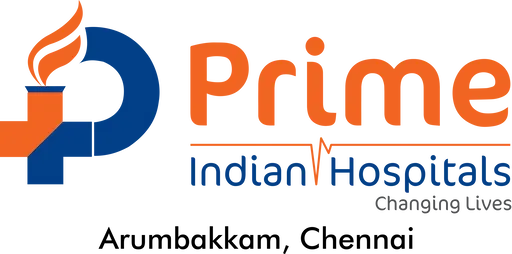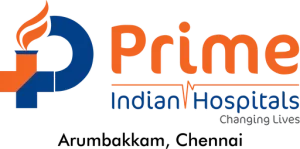Psychiatry and de-addiction therapy play a crucial role in addressing mental health disorders and substance abuse issues. These interventions are designed to help individuals overcome psychological challenges, regain control over their lives, and achieve long-term well-being. Mental health disorders, including anxiety, depression, and schizophrenia, often co-exist with substance abuse, necessitating a comprehensive treatment approach. Addiction is a complex condition that affects the brain’s reward system, making it difficult for individuals to quit without professional support. With the rise in mental health awareness, timely psychiatric intervention and structured de-addiction programs have proven to be highly effective in achieving lasting recovery.
Psychiatry & De-Addiction
Psychiatry focuses on diagnosing, treating, and managing mental health disorders, while de-addiction therapy is aimed at helping individuals overcome substance dependence. Together, they form a multidisciplinary approach that integrates medical, psychological, and social interventions to ensure holistic recovery. The interplay between mental health disorders and addiction often requires specialized psychiatric care to address underlying psychological triggers.
- Psychiatric evaluation helps in identifying co-occurring disorders, ensuring targeted treatment.
- De-addiction therapy includes medically supervised detoxification, behavioral therapy, and long-term relapse prevention strategies.
- Family counseling and social rehabilitation are essential components to provide a supportive environment for recovery.
- Holistic treatment approaches, including mindfulness and lifestyle modifications, enhance recovery outcomes.
- Long-term aftercare planning is critical in sustaining sobriety and preventing relapse.
- Psychiatrists play a key role in managing withdrawal symptoms and prescribing necessary medications.
- Patients benefit from personalized treatment plans that address specific addiction patterns and mental health needs.
Signs & Symptoms of Addiction
Recognizing the signs of addiction early can significantly improve treatment outcomes. Substance dependence manifests in physical, psychological, and behavioral symptoms, which progressively worsen over time. It is vital to identify these warning signs and seek professional assistance at the earliest.
- Physical symptoms: Unexplained weight loss or gain, persistent fatigue, changes in appetite, and withdrawal symptoms such as sweating, tremors, or nausea.
- Psychological symptoms: Mood swings, anxiety, depression, paranoia, hallucinations, and difficulty concentrating.
- Behavioral symptoms: Loss of interest in daily activities, neglecting responsibilities, engaging in risky behaviors, and experiencing financial or legal problems.
- Social symptoms: Isolation from family and friends, conflicts in personal relationships, and deteriorating work performance.
- Cognitive symptoms: Impaired judgment, memory loss, and difficulty making decisions.
- Compulsive behavior: Repeated use of substances despite knowing their harmful effects, inability to quit, and experiencing strong cravings.
- Tolerance and dependency: Needing higher doses to achieve the same effect and experiencing withdrawal symptoms when not using the substance.
Treatment
Effective de-addiction treatment requires a combination of medical intervention, psychological support, and behavioral modification strategies. The treatment process is structured to address both the physiological and psychological aspects of addiction, ensuring comprehensive care.
- Medical Detoxification: Supervised withdrawal management to eliminate substances from the body safely while minimizing withdrawal symptoms.
- Psychotherapy: Cognitive Behavioral Therapy (CBT),Dialectical Behavior Therapy (DBT), and Motivational Interviewing (MI) to address addiction triggers and develop coping mechanisms.
- Medication-Assisted Treatment (MAT): Prescription medications such as naltrexone, methadone, or buprenorphine to reduce cravings and prevent relapse.
- Support Groups: Peer-based programs like Alcoholics Anonymous (AA) and Narcotics Anonymous (NA) provide community support and accountability.
- Rehabilitation Programs: Inpatient and outpatient care facilities offer structured treatment environments for long-term recovery.
- Holistic Interventions: Nutritional therapy, exercise regimens, and wellness programs enhance physical and mental well-being.
- Aftercare & Relapse Prevention: Continued counseling, therapy sessions, and lifestyle changes help individuals maintain sobriety and prevent relapse.
Techniques
A variety of evidence-based techniques are employed in psychiatric and de-addiction therapy to enhance treatment effectiveness. These methods help individuals regain control over their thoughts and behaviors while reinforcing positive coping mechanisms. In addition, rheumatology plays an important role in addressing conditions that may impact mental health, such as chronic pain and autoimmune disorders, which can contribute to emotional distress or substance dependency.
Rheumatologists work alongside psychiatric specialists to ensure that physical health conditions, such as arthritis or lupus, are effectively managed, thereby improving the overall well-being of patients. By integrating both mental and physical health care, individuals receive comprehensive treatment, which addresses both the mind and body, ensuring more sustainable recovery and better quality of life.
- Behavioral Therapy: Addresses negative thought patterns and encourages healthier behavioral responses.
- Biofeedback & Neurofeedback: Uses real-time monitoring of brain activity to train individuals in self-regulation.
- Motivational Enhancement Therapy (MET): Encourages self-motivation for change by addressing ambivalence towards quitting.
- Holistic Approaches: Yoga, meditation, and art therapy complement traditional treatment methods, promoting overall well-being.
- Cognitive Restructuring: Identifies and modifies dysfunctional thought patterns that contribute to addiction.
- Contingency Management: Uses positive reinforcement strategies to encourage sobriety.
- Family Therapy: Engages family members to improve communication, rebuild trust, and provide support during recovery.
- 12-Step Programs: Structured peer-led recovery programs that guide individuals through a step-by-step process of healing.
- Mindfulness-Based Stress Reduction (MBSR): Incorporates meditation and awareness practices to reduce stress and cravings.
- Dialectical Behavior Therapy (DBT): Helps individuals develop emotional regulation skills to manage triggers and cravings.
Benefits
Psychiatry and de-addiction therapy offer numerous benefits that significantly improve an individual’s quality of life. The comprehensive approach ensures that patients regain stability, develop resilience, and achieve sustainable recovery.
- Mental Clarity & Emotional Stability: Reduced anxiety, depression, and stress-related symptoms, leading to improved decision-making and emotional resilience.
- Physical Well-Being: Improved sleep patterns, energy levels, and overall health, reducing the risk of substance-related illnesses.
- Restored Relationships: Rebuilding trust and healthy communication with family and loved ones, enhancing social support.
- Enhanced Productivity: Increased focus, motivation, and ability to fulfill personal and professional responsibilities.
- Relapse Prevention: Continuous counseling and support networks to ensure long-term sobriety and provide coping mechanisms for stress and triggers.
- Social Reintegration: Assistance with employment, education, and community engagement to help individuals rebuild their lives.
- Improved Self-Esteem & Confidence: Developing a sense of self-worth and personal accomplishment through sustained recovery.
- Financial Stability: Avoiding substance-related expenses and regaining control over financial matters.
- Healthy Lifestyle Habits: Incorporating better nutrition, exercise, and mental wellness practices into daily life.
- Legal & Personal Stability: Reducing legal troubles and fostering a responsible approach to personal and professional obligations.
Case Study: Successful Recovery Story
A 35-year-old man struggling with alcohol addiction for over a decade sought psychiatric and de-addiction therapy at Prime Indian Hospital. He underwent a comprehensive treatment plan, including detoxification, cognitive-behavioral therapy, and medication-assisted treatment. Over six months, he developed coping strategies, repaired relationships with his family, and secured stable employment. With continued aftercare support, he has remained sober for over two years, demonstrating the effectiveness of a well-structured de-addiction program.
Conclusion
Psychiatry and de-addiction therapy provide a lifeline for individuals struggling with mental health disorders and substance dependence. A well-structured treatment plan, supported by medical intervention and psychological therapy, can lead to long-term recovery and an improved quality of life. At Prime Indian Hospital, we offer comprehensive psychiatric care and de-addiction programs tailored to each individual’s needs. With a dedicated team of experts, we ensure holistic healing, empowering patients to reclaim their lives and embrace a healthier future. Our facility provides state-of-the-art treatments, continuous support, and a compassionate approach to mental health and addiction recovery, setting the foundation for lasting well-being. We are committed to guiding individuals on their journey to sobriety, fostering resilience, and restoring overall wellness.













